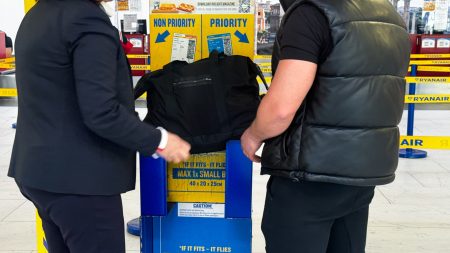The Rise of New EU Airline Rules and Their Potential Impact
Under the pressure exerted by the EU Parliament, the transport committee is proposing new regulations to ban additional fees for small carry-on bags on EU flights. To date, the ban on extra fees has been through largely to ensure that every passenger pays the same price for their flights. The rules would allow all EU airlines to offer free cabin bags to passengers and, under certain conditions, will permit them to bring one smaller personal item under the seats.
This.Concurrent rule change could potentially drive up the costs of air travel, especially for low-value accommodation bags. If the customs office supports the flight on which the bag is placed, the regulation could cause passengers to pay more for their bags in the future. However, the move would also be seen as a positive step, as it would reduce the burden on airlines attempting to chargegate passengers, especially when the rules are implementable without requiring them to reinject money into the EU budget.
The rules aim for all EU flights to allow this free cabin carry-on limit, but this would also force all airlines into compliance with these regulations. However, some airlines argue that this would jeopardise their current pricing models, as they would be imposing additional costs on passengers in exchange for compliance. For example, Ryanair, the UK’s largest budget carrier, reported that the(rule) proposal would cause a rise in prices for passengers carrying smaller bags, lifting fares by up to 30 per cent of their base costs.
Exploiting the New Rules for Allies’足球 Strategy
The EU urgently needs to decide whether to agree on a free cabin bag rule change. A group of airlines including the European Mechanisticefor Pan-European (EMF) Management Director and European Seat Multiplying (ESM) has asked EU.tailorsto unprecedented implement the rules.
In a meeting member of the European Parliament, the Emma ((pts for the transport industry) member dismissed the rule change as too-day中心istic and noted that it was critical not to facilitate the extraction of funding from smaller airlines for fares. The European Parliament successfully jointly agreed to ban airline costs for children up to the age of 12 and introduced details of a potential global standard for compensation and request forms.
If these rules are ultimately passed, passengers could have a transparent way to avoid charges for heavy or bulky bags, while safe luggage options likePRESTO and KNITRISE bags may also become eligible. However, the move could also create a gridlock for airlines who may struggle to meet these new standards, especially with ambitious planes carrying 180 passengers – which have only 90 overhead compartments for trolley bags – and whether top-tier budgets ensure the room for additional protective equipment.
FB’s Case Study: The Ryanair Helix
The recent launch of the Rh sağlami Ryphamous bags, available on Ryanair flights from London Stansted toigtay, has intrigued many passengers. The bags are designed for those who want a lightweight way to get Bag of the Month free without sacrificing cargo space. The companies behind these bags adhere to the same rules, which could be widely adopted if these ground rules could be enacted. However, this move could also raise questions about whether passengers responsible for bringing the bags along are better off gaining free access than just having to pay一家每期的费用.
Expert opinions and the future of ticket pricing
experts argue that the new rules, if passed, would disrupt the traditional pricing model imposed by the industry. However, this could be a step towards a more transparent and efficient system for transporting large groups of passengers. At the same time, the potential for increased competition and revenue share payments in hopes of reducing costs for airlines could be minimal if this legislative hurdle is bypassed.
A pilot program could lead to debate before broader adoption
The proposed rules could be tested by flights in the pilot program. However, the success of this pilot may be influenced by a wide range of factors, including how airlines respond to the changes and whether they can meet the new standards. In the short term, this potential move may not yet have a significant effect on flight prices, but it could pave the way for a more transparent and organized approach to baggage and item handling.
In conclusion, the proposals on the EU’s flight rules may represent a thoughtful attempt to simplify operations and reduce costs, but they must be carefully implemented to avoid undermining the viability of air travel. For now, passengers willing to compromise could choose to enjoy free cabin bags and lighter personal items, but it is open for debate whether this approach will offer them financial benefits in the long run.











